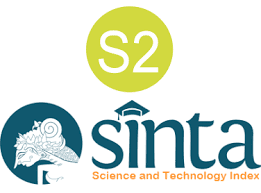Buruh Migran Indonesia Dalam Diplomasi Multi-jalur
Abstract
Full Text:
PDFReferences
Buzan, B. 1998. A New Frame Work For Analysis, Lynne Rienner Publisher.
________ 1991. People, State and Fear. Lynne Rienner Publisher.
Habermas, J. 2001. The Postnational Constellation, London: Polity Press
Held, D. 1995. Democracy and Global Order: From Modern State to Cosmopolitant Governance. Cambridge: Politi Press
________ 2002. “Cosmopolitanism: Ideas, Realities, Deficits,” dalam D. Held dan A. McGrew (eds), Governing Globalisation. Cambridge: Polity
Jeong, Ho-Won, ed. 1999. The New Agenda for Peace Research. Ashgate Publishing Company: Brookfield, Vermont.
Keohane, R.O. 1990. “Multilateralism: An Agenda for Research.” International Journal, 45/Fall: 731-64
Krasner, S.D. 1999. Sovereignty: Organized Hyprocracy. Princeton, NJ: Princeton University Press
Linklater, A. 1998. The Transformation of Political Community. Columbia: University of South Carolina Press: Polity Press
_________1990. Men and Citizens in the Theory of International relations, edisi 2. Princeton, NJ: Prinecton University Press
Manners, I. 2002. “Normative power Europe: a contradiction in terms?” Journal of Common Market Studies 40(2): 235-58.
Manners, I. 2006. “Normative power Europe reconsidered: beyond the crossroads.” Journal of European Public Policy 13(2): 182-99.
Morgenthau, H. 1948. Politics Among Nations, The Struggle for Power and Peace. New York: Alfred Knopf
Morgenthau, H dan K Thompson. 1985. Politics Among Nations, 6th edition New York: McGraw-Hill
Onuf, N. 1989. World of Our making: Rules and Rule in Social Theory and International Relations. Columbia SC: University of South Carolina Press
Rosenau, J. N., ed. 1993 Global Voice: Dialogues in International Relatiosn. Boulder: Westview Press
Rosenau, J. N., ed. 1990, Turbelance in World Politics: A Theory of Change and Continuity. Princeton NJ: Princeton University Press
Rosencrance, R. 1998. “The European Union: a new type of international actor.” dalam. J. Zielonka (ed.). Paradoxes of European Foreign Policy. The Hague: Kluwer Law International.
Strange, S. 1996. The Retreat of the State. The Diffusion of Power in the World Economy. Cambridge: Cambridge University Press
_______ 1991. Political Economy and International Relations. International Relations Theory Today, diedit oleh Ken Booth dan Stiven Smith, S., Cambridge: Polity Press. 1991: 154-174.
________1988. States and Markets. London. Pinter Publishers Spencer, D. E. dan W.J. Spencer. 1992. “The International Negotiation Network: A New Method of Approaching Some Very Old Problems.” Occasional Paper Series: Volume II, Number 2. The Carter Center of Emory University: Atlanta, Georgia.
________1993. “Resolving Intra-National Conflicts: A Strengthened Role for Intergovernmental Organizations.” Conference Report Series: Volume 5, Number 1. The Carter Center of Emory University: Atlanta, Georgia.
Waltz, K.N. 1979. Theory of International Politics London: MacGraw-Hill: Random House
Refbacks
- There are currently no refbacks.










